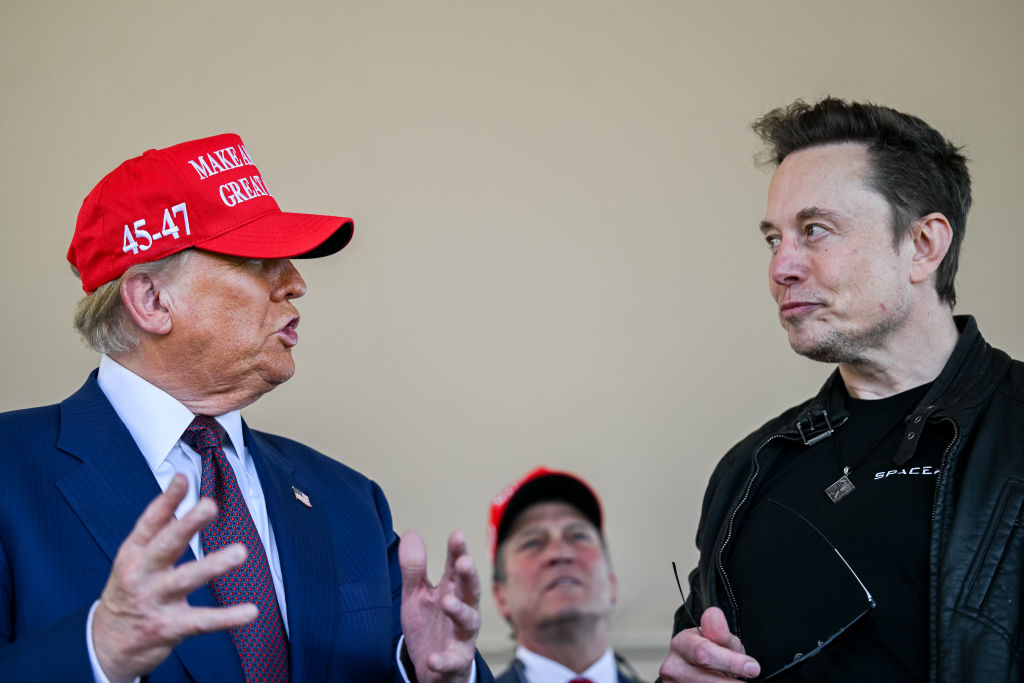Donald Trump’s recent announcement that he is appointing Indian-born tech executive Sriram Krishnan as a senior AI advisor has opened a rift between the President-elect’s populist base and his newfound Silicon Valley allies. The Chennai-born Krishnan, who helped reshape Twitter (now X) under top Trump backer Elon Musk, rose through Silicon Valley’s elite circles, mirroring the broader success of Indian immigrants in American tech. But it also represents everything Trump’s base once railed against: a global technocrat who advocates for expanded skilled immigration.
Yet Trump himself has been telegraphing this shift for months, telling tech investors in June that he wants to give green cards to foreign graduates automatically upon completion of their degrees. “What I want to do, and what I will do, is — you graduate from a college, I think you should get automatically, as part of your diploma, a green card to be able to stay in this country,” he declared on the All-In podcast. The statement reveals an uncomfortable truth about Trump’s second-term calculus: he appears willing to risk alienating his immigration-restrictionist supporters in exchange for tech industry backing.
The appointment drew immediate backlash from MAGA influencers, with fringe firebrand Laura Loomer leading the charge against what she deemed a betrayal of Trump’s America First agenda. Support came from the likes of Ann Coulter (who had previously told then-presidential candidate Vivek Ramaswamy she wouldn’t vote for him because he was Indian). Some notable Republicans quickly amplified these concerns, including former presidential candidate Nikki Haley, who argued on X that “there is nothing wrong with American workers or American culture. We should be investing and prioritising in Americans, not foreign workers.”
This tension spotlights a unique challenge for both the populist and tech-aligned Right: how to reconcile America First nationalism with the reality that Indian-Americans represent one of the highest-achieving immigrant groups in US history, particularly in technology and engineering. Elon Musk attempted to thread this needle, comparing skilled immigration to professional sports: “This is like bringing in the Jokic’s or Wemby’s of the world to help your whole team (which is mostly Americans!) win the NBA.”
Enter Indian-American Ramaswamy, the DOGE czar, who attempted to defend the appointment with a lengthy discourse on American cultural mediocrity. In a remarkable series of posts that betrayed his own disconnect from that culture, Ramaswamy argued that US companies hire foreign-born engineers not due to discrimination, but because jock-centric American society “venerates the prom queen over the math olympiad champ”. It celebrates characters like Saved by the Bell’s Zack Morris over its resident nerd Screech Powers, he claimed.
The irony in Ramaswamy’s pop culture references hasn’t gone unnoticed. His dismissal of 1980s uber-nerd Family Matters television character Steve Urkel as an emblem of nerd scorn overlooks how that character ultimately transforms into the ultra-cool Stefan Urquelle. This suggests, perhaps, what many Americans really want are native-born boy masterminds who can also transform themselves into reasonable facsimiles of real tough guys. Ramaswamy’s prescription of “more math tutoring, fewer sleepovers” and “more weekend science competitions, fewer Saturday morning cartoons” misreads the deeper cultural dynamics at play.
Americans don’t reject achievement; they reject the false choice between excellence and enjoyment, between being smart and being cool. It’s a nuance that seems lost on Ramaswamy, whose vision of success appears lifted straight from the pages of Asian tiger parenting manuals rather than any genuine understanding of American cultural values.
The response from MAGA influencers was swift and merciless, resulting in even Musk backtracking on his NBA-themed comments, clarifying that he only supported bringing in “the top ~0.1% of engineering talent.” But has the damage already been done? This debate could set up a significant midterm reckoning with Trump’s base, especially if the economy stumbles.
The tech Right’s recent arrival to Trump’s coalition, combined with their outsized influence over policy decisions and highly public role in his reelection victory, has obviously created simmering resentment among long-time MAGA supporters capable of exploding even over smaller-scale decisions like Krishnan’s appointment. This facade of unity could soon shatter for good, particularly if Trump’s base feels their America First priorities have been sacrificed at the altar of Silicon Valley’s global ambitions.











Join the discussion
Join like minded readers that support our journalism by becoming a paid subscriber
To join the discussion in the comments, become a paid subscriber.
Join like minded readers that support our journalism, read unlimited articles and enjoy other subscriber-only benefits.
Subscribe